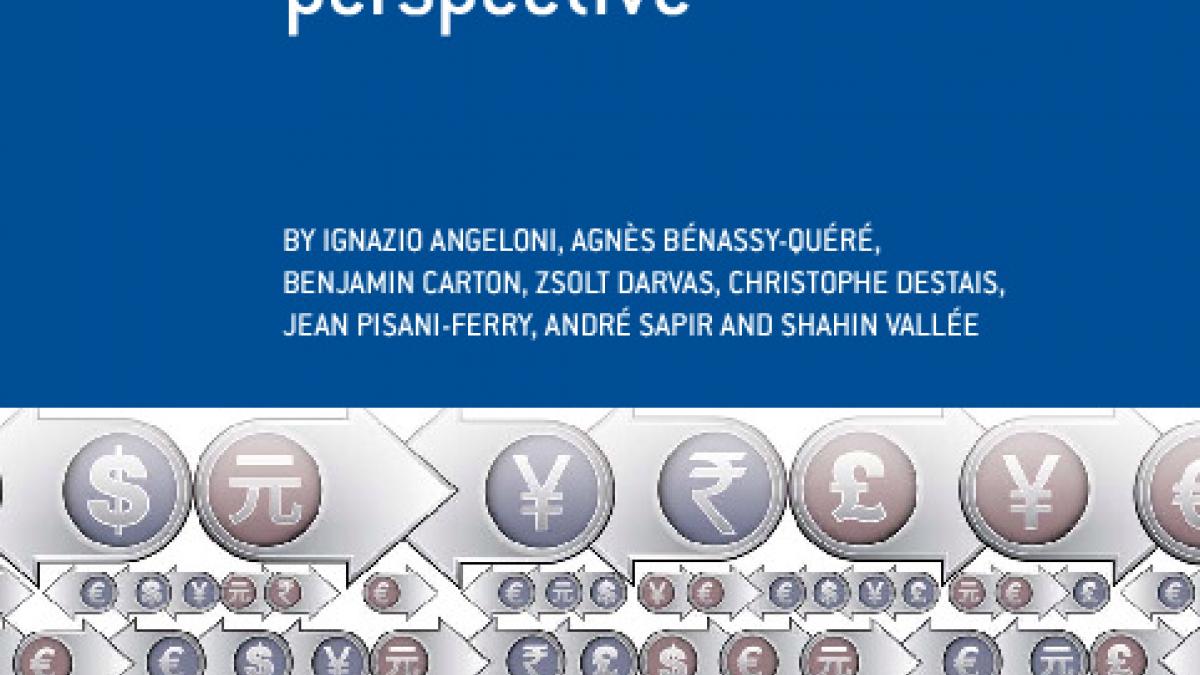- / Home
- / Publications
Global currencies for tomorrow: a European perspective
- Publishing date
- 23 July 2011

This report examines how the international monetary system (IMS) might evolve and the implications of different scenarios for the euro area over the next fifteen years.
After the collapse of the Bretton Woods system forty years ago, the IMS gradually developed into its present state, a hybrid mix of exchange-rate flexibility, capital mobility and monetary independence. The US dollar retains a dominant, but not exclusive, role and the IMS governance system blends regional and multilateral surveillance. It combines IMF-based and ad-hoc liquidity provision.
Although it has proved resilient during the crisis, partly thanks to ad-hoc arrangements, the IMS has serious flaws, which are likely to be magnified by the rapid transformation of the global economy and the increasing economic power of emerging economies.
About the authors
-
Jean Pisani-Ferry
Jean Pisani-Ferry is a Senior Fellow at Bruegel, the European think tank, and a Non-Resident Senior Fellow at the Peterson Institute (Washington DC). He is also a professor of economics with Sciences Po (Paris).
He sits on the supervisory board of the French Caisse des Dépôts and serves as non-executive chair of I4CE, the French institute for climate economics.
Pisani-Ferry served from 2013 to 2016 as Commissioner-General of France Stratégie, the ideas lab of the French government. In 2017, he contributed to Emmanuel Macron’s presidential bid as the Director of programme and ideas of his campaign. He was from 2005 to 2013 the Founding Director of Bruegel, the Brussels-based economic think tank that he had contributed to create. Beforehand, he was Executive President of the French PM’s Council of Economic Analysis (2001-2002), Senior Economic Adviser to the French Minister of Finance (1997-2000), and Director of CEPII, the French institute for international economics (1992-1997).
Pisani-Ferry has taught at University Paris-Dauphine, École Polytechnique, École Centrale and the Free University of Brussels. His publications include numerous books and articles on economic policy and European policy issues. He has also been an active contributor to public debates with regular columns in Le Monde and for Project Syndicate.
-
Ignazio Angeloni
Ignazio Angeloni joined Bruegel as a visiting fellow in June 2008 and is currently a Member of the Supervisory Board of the European Central Bank. He has previously been the Director General - Financial Stability, Head of ECB preparation for the SSM, and Adviser to the ECB Executive Board on European financial integration, financial stability and monetary policy. He was the coordinator and contributor to the the G20 monitor.
Before that, he was the Director for International Financial Relations at the Italian Ministry of Economy and Finance.
He holds a Ph.D. in Economics from the University of Pennsylvania. His research interests include macro economics, central banking, financial markets and the economics and politics of European integration.
-
André Sapir
André Sapir, a Belgian citizen, is a Senior fellow at Bruegel. He is also University Professor at the Université libre de Bruxelles (ULB) and Research fellow of the London-based Centre for Economic Policy Research.
Between 1990 and 2004, he worked for the European Commission, first as Economic Advisor to the Director-General for Economic and Financial Affairs, and then as Principal Economic Advisor to President Prodi, also heading his Economic Advisory Group. In 2004, he published 'An Agenda for a Growing Europe', a report to the president of the Commission by a group of independent experts that is known as the Sapir report. After leaving the Commission, he first served as External Member of President Barroso’s Economic Advisory Group and then as Member of the General Board (and Chair of the Advisory Scientific Committee) of the European Systemic Risk Board based at the European Central Bank in Frankfurt.
André has written extensively on European integration, international trade and globalisation. He holds a PhD in economics from the Johns Hopkins University in Baltimore, where he worked under the supervision of Béla Balassa. He was elected Member of the Academia Europaea and of the Royal Academy of Belgium for Science and the Arts.
-
Zsolt Darvas
Zsolt Darvas is a Senior Fellow at Bruegel and a part-time Senior Research Fellow at the Corvinus University of Budapest. He joined Bruegel in 2008 as a Visiting Fellow, and became a Research Fellow in 2009 and a Senior Fellow in 2013.
From 2005 to 2008, he was the Research Advisor of the Argenta Financial Research Group in Budapest. Before that, he worked at the research unit of the Central Bank of Hungary (1994-2005) where he served as Deputy Head.
Zsolt holds a Ph.D. in Economics from Corvinus University of Budapest where he teaches courses in Econometrics but also at other institutions since 1994. His research interests include macroeconomics, international economics, central banking and time series analysis.
-
Agnès Bénassy-Quéré
Agnès Bénassy-Quéré is Deputy Governor of the Banque de France and member of the Bruegel board. Before this, she was the chief economist at the French Treasury. She was a Professor at the Paris School of Economics - University of Paris 1 Panthéon Sorbonne, and the Chair of the French Council of economic analysis. She worked for the French Ministry of economy and finance, before moving to academic positions successively at universities of Cergy-Pontoise, Lille 2, Paris-Ouest and Ecole Polytechnique. She also served as a Deputy-director and as a Director of CEPII and is affiliated with CESIfo and IZA. She is a Member of the Commission Economique de la Nation (an advisory body to the Finance minister), of the French macro-prudential authority and of the Banque de France’s Board. Her research interests focus on the international monetary system and European macroeconomic policy.
-
Shahin Vallée
Shahin Vallée is head of DGAP’s Geo-Economics Program. Prior to that, he was a senior fellow in DGAP’s Alfred von Oppenheim Center for European Policy Studies.
Until June 2018, Vallée was a senior economist for Soros Fund Management, where he worked on a wide range of political and economic issues. He also served as a personal advisor to George Soros. Prior to that, he was the economic advisor to Emmanuel Macron at the French Ministry for the Economy and Finance, where he focused on European economic affairs. Between 2012 and 2014, Vallée was the economic advisor to President of the European Council Herman Van Rompuy. This experience has put him at the heart of European economic policy discussions since 2012, in particular on issues related to the euro area and international policy coordination (IMF, G20). Having started his career working for social investment vehicles and entrepreneurship in Africa, he has also worked as a visiting fellow at Bruegel, a Brussels-based economic think tank, and as an economist for a global investment bank in London.
Vallée is currently completing a PhD in political economy at the London School of Economics and Political Science. He holds a master’s degree from Columbia University in New York, a degree in public affairs from Sciences Po in Paris, and an undergraduate degree in econometrics from the Sorbonne.
- Theme
- Global economy and trade
- Language
- English
Related content

The impact on the European Union of Ukraine’s potential future accession
This report evaluates the impact on the EU of a possible EU accession of Ukraine, focusing on economic consequences and institutional developments.

Emerging countries have replaced most of Russia’s lost trade with advanced economies
Russian trade overall seems to have suffered little from sanctions; meanwhile, medicine and food trade continues with sanctioning countries

The EU needs a methodology for including reform impacts in fiscal trajectories
Such a methodology, and a governance mechanism for managing associated risks, must be in place before the new fiscal framework kickstarts in September
